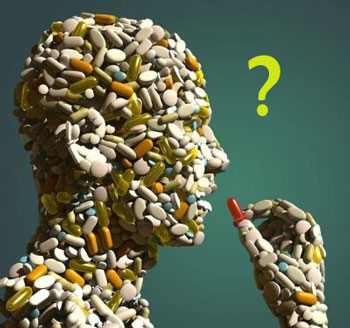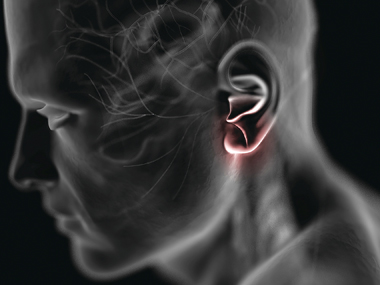
Dr. Christensen nailed this article. So I’m going to insert it exactly as is. For those of you with the autoimmune condition of Hashimoto’s, here is an excellent summary of the supplements that are needed (and not much more). (Note: Lifestyle choices are equally as important but are not included here).
“Supplements To Take For Hashimoto’s
By: Dr. Alan Christianson
With the vast array of supplements readily available, it’s easy to get overwhelmed with taking too many each day. When it comes to which supplements to take for Hashimoto’s, I have a simple strategy: Keep it focused and simple.
What do I mean by that?
With Hashimoto’s, you want to make sure you are getting what you need, and you aren’t getting what you don’t need.
Simple, right?
Some supplements will work against your body and set you back. Others aren’t bad, per se, but they aren’t the most important when it comes to treating Hashimoto’s. Remember, your body metabolizes all supplements through the liver, so taking 20-30 a day may have little benefit and be hard on your system.
Which supplements do you want to make sure you are getting?
- Vitamin A: You want to get a good blend of carotenoids. Beta carotene is the carotenoid you hear about most. Your body makes beta carotene into active vitamin A. In order to get a good blend of carotenoids, look for whole foods and versions of vitamin A that contain them. I love palm fruit, as it has a nice spectrum of carotenoids and is very bioavailable. This means it’s easy for the body to convert and activate.
- Vitamin C: I recommend 500-1,000 milligrams per day and not much more than that. There is a lot of data proving antioxidants are important, but if you have too much of any one, you end up robbing your body’s own antioxidants (like superoxide dismutase or glutathione).
- Vitamin D: This vitamin is super-important and available in many forms. I prefer the capsules, as it’s easier to track how much I’m getting. Very few people reach a good blood level of Vitamin D with less than 10,000 units per day. Make sure you’re taking enough, and you’re taking it with food.
When considering vitamin D supplementation, it’s important to realize this vitamin allows your body to absorb calcium. This is a good thing if you’re getting the right type of calcium, and your body is using it properly, yielding stronger bones. It’s a bad thing if it isn’t the right type of calcium or if your body isn’t using it well. This will create plaque in the blood vessels, causing joint calcification, kidney stones or gallstones.
The important types of calcium are those similar to the calcium found in plants. They dissolve easily in water. My favorite form is dicalcium malate. It won’t cause calcification or gum up your arteries. This type is also free of lead. A lot of calcium is derived from oyster shells or bones (like the microcrystalline hydroxyapatite). There is concern about lead contamination with these types. (Because bone tissue always contain lead, there is also concern regarding bone broths, collagen and gelatin.)
It is good to take a plant-based magnesium, as well. When it comes to calcium-magnesium ratios, many of the high-dosage guidelines were based on types not easily absorbed. I’m a fan of a couple hundred milligrams (or even slightly less) per day and in close-to-equal ratios. When you’re taking forms that are well-absorbed and free of lead, you don’t need much.
- B-Vitamins: The B-vitamins are all critically important. Let’s look at them individually.
Folic Acid: Avoid all synthetic folic acid. This is important for one reason: Those with thyroid disease have a gene defect that causes folic acid to be poison, raising the risk for colorectal cancer. Instead, look for methylfolate as your folate source. You need a milligram per day, which is 1,000 micrograms. This helps your body with its methylation pathways.
B12: The preferred form of B12 is methyl B12, which is well-absorbed orally.
Biotin: Biotin is critical for your hair, skin and nail health. You want to take 3,000 micrograms (and not more than 3,500 micrograms) per day. If you take much more than this, it actually blocks the body’s usage of it. Many people take mega doses, thinking it will help their hair, and it doesn’t.
B6: Both pyridoxine hydrochloride and pyridoxal 5-phosphate are good forms of B6.
Thiamine: There is current data, showing thiamine is beneficial for both the antibodies of Hashimoto’s and hormone conversion.
B5 (Pantothenic Acid or Pantothenate): This B-vitamin benefits your cortisol levels and cortisol conversion. It’s good to have a few milligrams per day
- Vitamin K: The best form of vitamin K is vitamin K2. The most research has been done on a form called MK-7. It’s like the vitamin K we make in our intestinal tract. Vitamin K2 allows your body to direct calcium to the bones and away from the blood vessels. It also plays an important role in your blood’s ability to clot properly.
- Trace Minerals: Trace minerals and ultra trace minerals are extremely important. When it comes to thyroid disease, selenium is the big hitter. Selenium is difficult to absorb and is still being debated as to how well it enters the bloodstream in supplemental form. The most data is available regarding selenium glycinate complexes (selenium bound with a carrier protein, called glycine). This form is easily absorbed, non-toxic and effective.
Also, consider a few of the more exotic trace minerals: vanadium, molybdenum, boron and manganese. These are all critical for building and utilizing thyroid hormones.
- Bioflavonoids: There are two important bioflavonoids I recommend: hersperetin and quercetin. These do well in strengthening your connective tissues. Varicose veins, hemorrhoids or easy bruising are all related to the strength of connective tissue. So, take a few milligrams of these two bioflavonoids on a regular basis to help round out your supplementation.
- Essential Fats: EPA and DHA are the critical essential fats to control inflammation, keep the brain functioning well and help repair joints and cartilage.”
Be well,
Lynn

 January 13th, 2016
January 13th, 2016  Lynn
Lynn 
 Posted in
Posted in  Tags:
Tags: 





